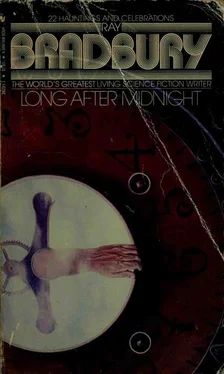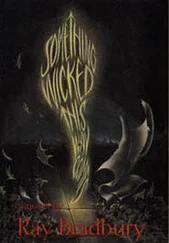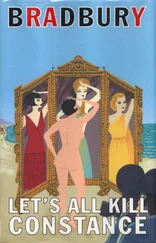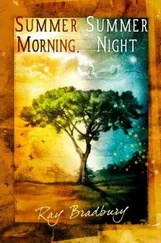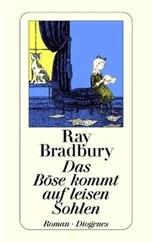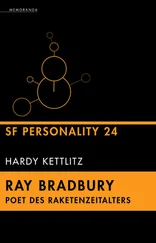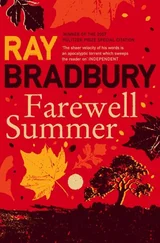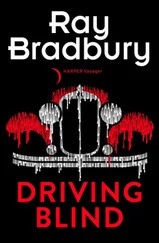Ray Bradbury - Long After Midnight
Здесь есть возможность читать онлайн «Ray Bradbury - Long After Midnight» — ознакомительный отрывок электронной книги совершенно бесплатно, а после прочтения отрывка купить полную версию. В некоторых случаях можно слушать аудио, скачать через торрент в формате fb2 и присутствует краткое содержание. Год выпуска: 1982, ISBN: 1982, Жанр: Классическая проза, на английском языке. Описание произведения, (предисловие) а так же отзывы посетителей доступны на портале библиотеки ЛибКат.
- Название:Long After Midnight
- Автор:
- Жанр:
- Год:1982
- ISBN:978-0-553-22867-0
- Рейтинг книги:5 / 5. Голосов: 1
-
Избранное:Добавить в избранное
- Отзывы:
-
Ваша оценка:
- 100
- 1
- 2
- 3
- 4
- 5
Long After Midnight: краткое содержание, описание и аннотация
Предлагаем к чтению аннотацию, описание, краткое содержание или предисловие (зависит от того, что написал сам автор книги «Long After Midnight»). Если вы не нашли необходимую информацию о книге — напишите в комментариях, мы постараемся отыскать её.
Long After Midnight — читать онлайн ознакомительный отрывок
Ниже представлен текст книги, разбитый по страницам. Система сохранения места последней прочитанной страницы, позволяет с удобством читать онлайн бесплатно книгу «Long After Midnight», без необходимости каждый раз заново искать на чём Вы остановились. Поставьте закладку, и сможете в любой момент перейти на страницу, на которой закончили чтение.
Интервал:
Закладка:
Then an answering cry burst from his mouth:
"_om! —om!"
He could not pronounce the T.
But it was my name.
Like a man on a cliff edge, terrified that the earth might fall and drop him back to night and soil, he shuddered, grappled me.
"-om!"
I held him tight. He could not fall.
Riveted in a fierce embrace, not able to let go, we stood and rocked gently, strangely, two men made one, in a wilderness of shredding snow.
Tom, O Tom, he grieved brokenly, over and over.
Father, O dear Pa, Dad, I thought, I said.
The old man stiffened, for over my shoulder he must have truly seen for the first time the stones, the empty fields of death. He gasped as if to cry: What is this place?
Old as his face was, in the instant of recognition and remembrance, his eyes, his cheeks, his mouth withered and grew yet older, saying No.
He turned to me as if seeking answers, some guardian of his rights, some protector who might say No with him. But the cold truth was in my eyes.
We were both staring now at the dim path his feet had made blundering across the land from the place where he had been buried for many years.
No, no, no, no, no, no, no!
The words fired from his mouth.
But he could not pronounce the n.
So it was a wild explosion of: "... o .,. o ... o ..; o ... o ...! "
A forlorn, dismayed, child-whistling cry.
Then, another question shadowed his face.
I know this place. But why am I here?
He clawed his arms. He stared down at his withered chest.
God gives us dreadful gifts. The most dreadful of all is memory.
He remembered.
And he began to melt away. He recalled his body shriveling, his dim heart gone to stillness; the slam of some eternal door of night
He stood very still in my arms, his eyelids flickering over the stuffs that shifted grotesque furnitures within his head. He must have asked himself the most terrible question of all:
Who has done this thing to me?
He opened his eyes. His gaze beat at me.
You? it said.
Yes, I thought. I wished you alive this night.
You/ his face and body cried.
And then, half-aloud, the final inquisition:
"Why . . . ?"
Now it was my turn to be blasted and riven.
Why, indeed, had I done this to him?
How had I dared to wish for this awful, this harrowing, confrontation?
What was I to do now with this man, this stranger, this old, bewildered, and frightened child? Why had I summoned him, just to send him back to soils and graves and dreadful sleeps?
Had I even bothered to think of the consequences? No. Raw impulse had shot me from home to this burial field like a mindless stone to a mindless goal. Why? Why?
My father, this old man, stood in the snow now, trembling, waiting for my pitiful answer.
A child again, I could not speak. Some part of me knew a truth I could not say. Inarticulate with him in life, I found myself yet more mute in his waking death.
The truth raved inside my head, cried along the fibers of my spirit and being, but could not break forth from my tongue. I felt my own shouts locked inside.
The moment was passing. This hour would soon be gone. I would lose the chance to say what must be said, what should have been said when he was warm and above the earth so many years ago.
Somewhere far off across country, the bells sounded twelve-thirty on this Christmas morn. Christ ticked in the wind. Snow flaked away at my face with time and cold, cold and time.
Why? my father's eyes asked me; why have you brought me here?
"I—" and then I stopped.
For his hand had tightened on my arm. His face had found its own reason.
This was his chance, too, his final hour to say what he should have said when I was twelve or fourteen or twenty-six. No matter if I stood mute. Here in the falling snow, he could make his peace and go his way.
His mouth opened. It was hard, so dreadfully hard, for him to force the old words out. Only the ghost within the withered shell could dare to agonize and gasp. He whispered three words, lost in the wind.
"Yes?" I urged.
He held me tight and tried to keep his eyes open in the blizzard-night. He wanted to sleep, but first his mouth gaped and whistled again and again:
"... I uw yuuuuuuuu !"
He stopped, trembled, wracked his body, and tried to shout it again, failing:
".. . I wv yyy u... I"
"Oh, Dad!" I cried. "Let me say it for you!"
He stood very still and waited.
"Were you trying to say I ... love . .. you?"
"Esssss!" he cried. And burst out, very clearly, at long last: "Oh, yes!"
"Oh, Dad," I said, wild with miserable happiness, all gain and loss. "Oh, and Pa, dear Pa, I love you."
We fell together. We held.
I wept.
And from some strange dry well within his terrible flesh I saw my father squeeze forth tears which trembled and flashed on his eyelids.
And the final question was thus asked and answered.
Why have you brought me here?
Why the wish, why the gifts, and why this snowing night?
Because we had had to say, before the doors were shut and sealed forever, what we never had said in life.
And now it had been said and we stood holding each other in the wilderness, father and son, son and father, the parts of the whole suddenly interchangeable with joy. The tears turned to ice upon my cheeks.
We stood in the cold wind and falling snow for a long while until we heard the sound of the bells at twelve forty-five, and still we stood in the snowing night saying no more—no more ever need be said—until at last our hour was done.
All over the white world the clocks of one a.m. on Christmas morn, with Christ new in the fresh straw, sounded the end of that gift which had passed so briefly into and now out of our numb hands.
My father held me in his arms.
The last sound of the one-o'clock bells faded.
I felt my father step back, at ease now.
His fingers touched my cheek.
I heard him walking in the snow.
The sound of his walking faded even as the last of the crying faded within myself.
I opened my eyes only in time to see him, a hundred yards off, walking. He turned and waved, once, at me.
The snow came down in a curtain.
How brave, I thought, to go where you go now, old man, and no complaint.
I walked back into town.
I had a drink with Charles by the fire. He looked in . my face and drank a silent toast to what he saw there.
Upstairs, my bed waited for me like a great fold of white snow.
The snow was falling beyond my window for a thousand miles to the north, five hundred miles to the east, two hundred miles west, a hundred miles to the south. The snow fell on everything, everywhere. It fell on two sets of footprints beyond the town: one set coming out and the other going back to be lost among the graves.
I lay on my bed of snow. I remembered my father's face as he waved and turned and went away.
It was the face of the youngest, happiest man I had ever seen.
With that I slept, and gave up weeping.
Forever and the Earth
After seventy years of writing short stories that never sold, Mr. Henry William Field arose one night at eleven-thirty and burned ten million words. He carried the manuscripts downstairs through his dark old mansion and threw them into the furnace.
"That's that," he said, and thinking about his lost art and his misspent life, he put himself to bed, among his rich antiques. "My mistake was in ever trying to picture this wild world of a.d. 2257. The rockets, the atom wonders, the travels to planets and double suns. Nobody can do it. Everyone's tried. All of our modern authors have failed."
Space was too big for them, and rockets too swift, and atomic science too instantaneous, he thought. But at least the other writers, while failing, had been published, while he, in his idle wealth, had used the years of his life for nothing.
Читать дальшеИнтервал:
Закладка:
Похожие книги на «Long After Midnight»
Представляем Вашему вниманию похожие книги на «Long After Midnight» списком для выбора. Мы отобрали схожую по названию и смыслу литературу в надежде предоставить читателям больше вариантов отыскать новые, интересные, ещё непрочитанные произведения.
Обсуждение, отзывы о книге «Long After Midnight» и просто собственные мнения читателей. Оставьте ваши комментарии, напишите, что Вы думаете о произведении, его смысле или главных героях. Укажите что конкретно понравилось, а что нет, и почему Вы так считаете.
